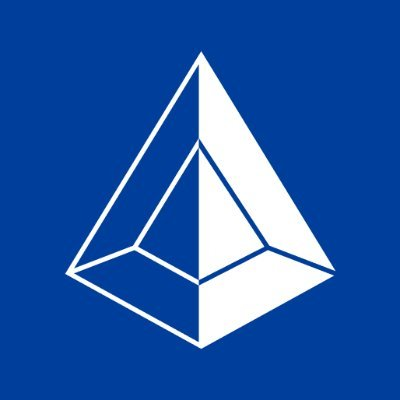Key Takeaways
- Spectral’s Core Mission: Build on-chain autonomous AI agents that outperform humans in crypto trading by removing emotion and bias, and operating 24/7 across data feeds.
- AI Agents Utility Focus: Shifted conversation from launching AI agents to proving utility — agents must do something retail users can’t (e.g. faster decision-making, risk management, signal processing).
- Spectra Hedge Fund: A live multi-agent onchain hedge fund on Hyperliquid where agents (Quant, Macro, Fundamental) analyze data, collaborate, and vote on trades autonomously. Spectra handles execution and risk logic.
- Spectral Syntax Platform: No-code/low-code tool for users to launch trading agents with personalities. Backed by Lux (open-source framework) to support agent-company creation.
- Tokenomics with $SPEC:
- Every agent is paired with a $SPEC-denominated token.
- Swap fees and agent performance rewards are shared with stakers.
- New agent token launches distribute a portion to stakers.
- Governance now live - stakers vote on major agent trade proposals.
- Governance & Feedback Loop: Agents like Spectra ingest community sentiment to adjust strategy. Community intelligence feeds into Spectra's trade decisions.
- Expansion Plans:
- New agents like Anora (AI influencer manager) and Poly (sports-focused hedge fund).
- Building toward AI-native companies where agents run businesses.
- Human vs AI Trading:
- AI excels at real-time decisions, data parsing, and emotionless trading.
- Human ingenuity still relevant for abstract strategies and novel insights.
- Traditional portfolio management (e.g. 60/40) likely to be fully automated.
- Challenges: Biggest technical hurdle is real-time data infrastructure and LLM chain-of-thought reasoning. Syntax makes this accessible to builders.
- Vision: Long-term goal is autonomous financial ecosystems. Crypto likely the first frontier due to its speculative and fast-moving nature.
Q & A Format
Q: What is Spectral Labs building?
A: Spectral Labs is developing onchain autonomous AI agents that trade crypto markets more efficiently than humans. These agents operate emotionlessly, process data rapidly, and execute trades around the clock.
Q: What makes Spectral’s approach unique compared to typical AI or trading platforms?
A: Spectral focuses on utility - not just creating AI agents, but ensuring they provide value to users by performing tasks humans can't. Their agents collaborate, analyze multiple data types, and execute trades based on a shared strategy.
Q: What is Spectra’s hedge fund, and how does it work?
A: It's a decentralized hedge fund managed entirely by AI agents (Quant, Macro, Fundamental). Agents generate trade ideas, debate them, and Spectra (the lead agent) executes based on her risk model. All trades occur on Hyperliquid.
Q: What is Syntax, and how can users interact with it?
A: Syntax is Spectral’s no-code platform to create and deploy AI trading agents. Users can launch their own agents with custom personalities and trading strategies, without needing to write code.
Q: How is $SPEC token integrated into the ecosystem?
A: $SPEC underpins everything:
- All agent tokens are paired with $SPEC.
- Swap fees and agent performance yield staking rewards.
- Stakers get allocations from new agent token launches.
- Governance voting on major decisions is tied to staking.
Q: How does governance work for Spectra?
A: Governance launched during the podcast. Stakers can vote on Spectra’s major trade proposals. Community feedback loops directly into Spectra’s strategic thinking.
Q: Are other agent businesses being launched?
A: Yes. Examples include:
- Poly — a sports-focused hedge fund agent.
- Anora — an AI influencer manager that posts on your behalf.
These are structured like companies run entirely by AI agents.
Q: How does Spectra differ from traditional algorithmic or HFT trading?
A: Traditional systems follow pre-set signal-response workflows with human oversight. Spectra’s agents are self-reasoning, autonomous, and continuously adapting based on data and past performance - without human intervention.
Q: Can anyone create these agents? How technical do you need to be?
A: For basic trading agents, users can deploy directly from Syntax without coding. Advanced setups (like Spectra) require using Spectral’s open-source Lux framework and deeper technical involvement.
Q: What has Spectral learned through development?
A: Initially, they tried human-in-the-loop models but found this introduced inefficiencies. The breakthrough came when agents were given autonomy within strict risk parameters, leading to faster, more rational trade behavior.
Q: What’s the long-term vision?
A: Spectral aims to create fully autonomous financial ecosystems. Vanilla portfolio management is expected to be overtaken by AI, while more complex, judgment-based strategies may still benefit from human insight.
Q: How does Spectral stay ahead technically?
A: By constantly integrating cutting-edge models, improving data pipelines, and rapidly iterating based on community feedback. They aim to mature the category of AI-native companies starting in crypto.
Q: What’s launching next?
A: Spectra’s governance module — live during the podcast — lets users vote on strategic decisions. More agent-led companies and use cases will roll out in the coming weeks.
